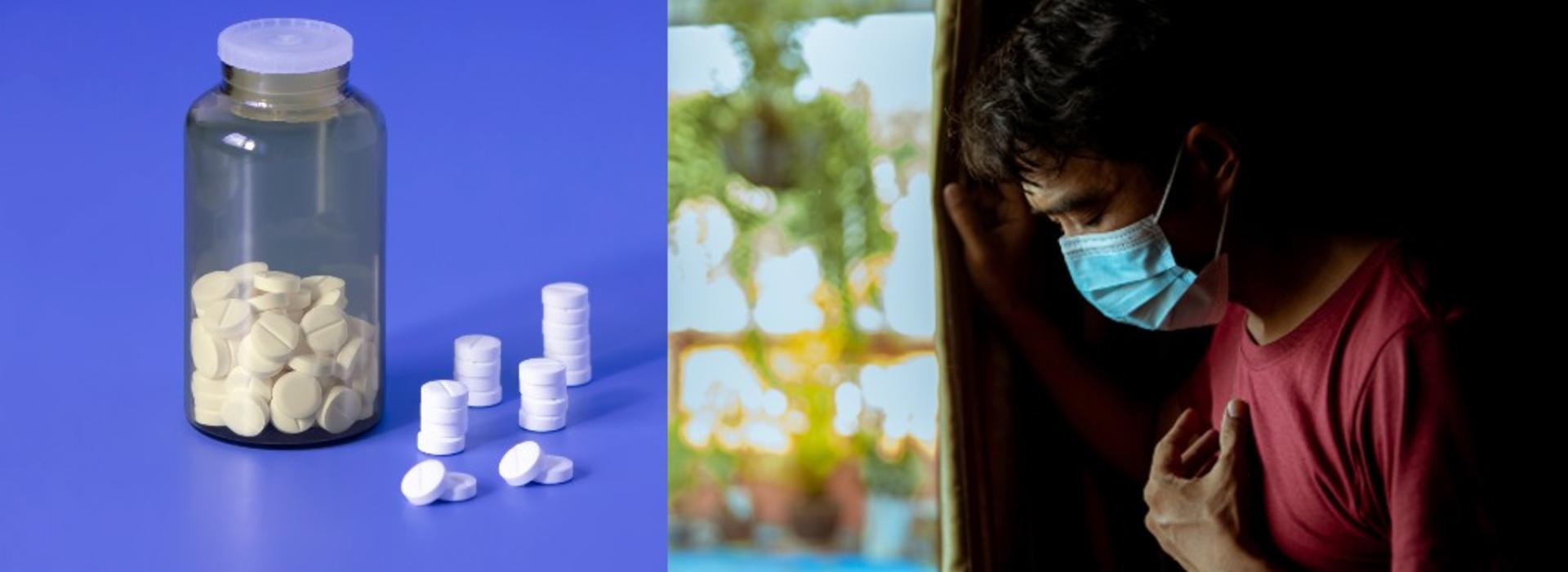
Study shows metformin lowers the risk of getting long COVID
MINNEAPOLIS/ST. PAUL (06/09/2023) — In a new study published in The Lancet Infectious Diseases, University of Minnesota researchers found that metformin, a drug commonly used to treat diabetes, prevents the development of long COVID.
The study, called COVID-OUT, investigated if early outpatient COVID-19 treatment with metformin, ivermectin or fluvoxamine could prevent long COVID. Long COVID is a chronic illness that can affect up to 10% of people who have had COVID-19.
“The results of this study are important because long COVID can have a significant impact on people's lives,” said Carolyn Bramante, MD, principal investigator and an assistant professor at the U of M Medical School. “Metformin is an inexpensive, safe and widely available drug, and its use as a preventive measure could have significant public health implications.”
This was a large, placebo-controlled randomized clinical trial which enrolled volunteers across the United States. The study found:
- Those who received metformin were more than 40% less likely to develop long COVID than those who received an identical looking placebo.
- For participants who started metformin less than four days after their COVID symptoms started, metformin decreased the risk of long COVID by 63%.
- The effect was consistent across different demographic populations of volunteers who participated and across multiple viral variants, including the Omicron variant.
- Ivermectin and fluvoxamine did not prevent long COVID.
The study included more than 1,200 participants who were randomly chosen to receive either metformin or placebo, and an additional subset received ivermectin, fluvoxamine or their placebos. Participants were between 30 and 85 years old who qualified as overweight or obese. Over 1,100 of the participants reported on their symptoms for up to 10 months after their initial COVID-19 diagnosis.
“This long-term outcome from a randomized trial is high-quality evidence that metformin prevents harm from the SARS-CoV-2 virus,” said Dr. Bramante, who is also an internist and pediatrician with M Health Fairview. “While half of our trial had been vaccinated, none had been previously infected with the COVID-19 virus. Further research could show whether it is also effective in those with previous infection or in adults with lower body mass index.”
Metformin’s ability to stop the virus was predicted by a simulator developed by U of M Medical School and College of Science and Engineering Biomedical Engineering faculty. The model has been highly accurate to date, successfully predicting, among others, the failure of hydroxychloroquine and the success of remdesivir before the results of clinical trials testing these therapies were announced.
Funding was provided by the Parsemus Foundation, Rainwater Charitable Foundation, Fast Grants and the United Health Foundation.This research was also supported by the National Institutes of Health’s National Center for Advancing Translational Sciences under award number [UL1TR002494, KL2TR002492, and UM1TR004406].
-30-
The University of Minnesota Medical School, School of Public Health, College of Science and Engineering and M Health Fairview served as the lead site. The trial was also conducted at Northwestern University; University of Colorado, Denver; Olive View – UCLA Education & Research Institute in Los Angeles; Optum Health, and with scientific collaboration from partners at the University of North Carolina at Chapel Hill, Vanderbilt University, and Emory University School of Medicine.
The content is solely the responsibility of the authors and does not necessarily represent the official views of the National Institutes of Health’s National Center for Advancing Translational Sciences.
About the University of Minnesota Medical School
The University of Minnesota Medical School is at the forefront of learning and discovery, transforming medical care and educating the next generation of physicians. Our graduates and faculty produce high-impact biomedical research and advance the practice of medicine. We acknowledge that the U of M Medical School, both the Twin Cities campus and Duluth campus, is located on traditional, ancestral and contemporary lands of the Dakota and the Ojibwe, and scores of other Indigenous people, and we affirm our commitment to tribal communities and their sovereignty as we seek to improve and strengthen our relations with tribal nations. For more information about the U of M Medical School, please visit med.umn.edu.
For media requests, please contact:
Alex Smith
Media Relations Specialist
a-smith@umn.edu
University of Minnesota Medical School